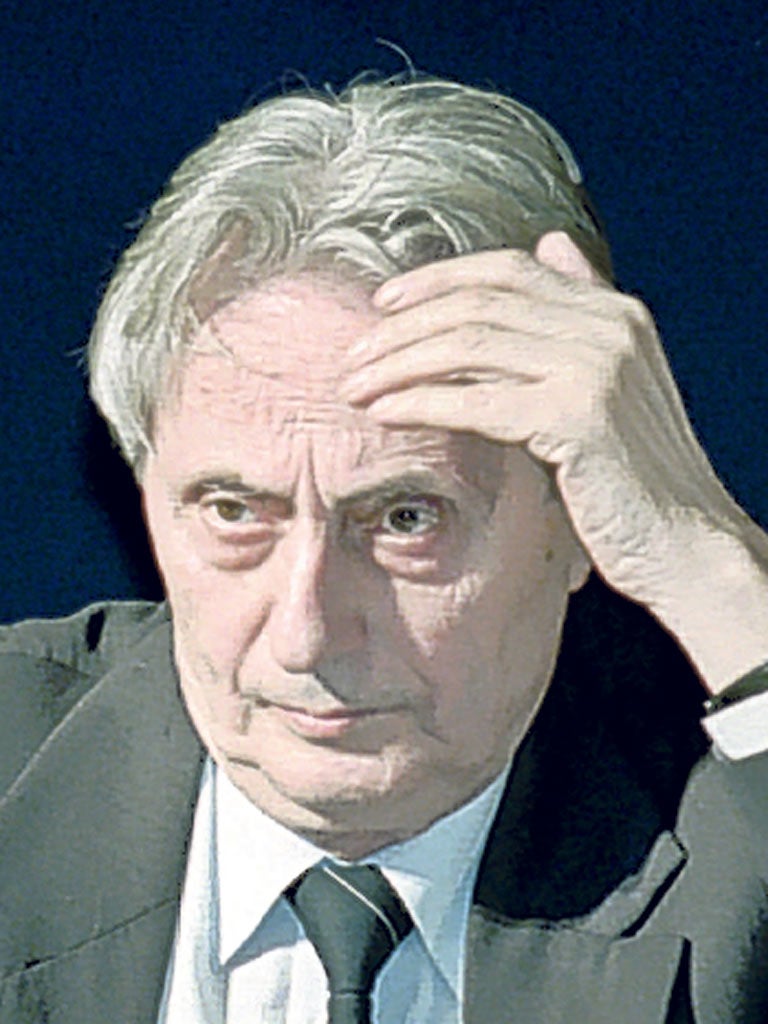Ion Diaconescu: Dissident who aided Romania's move to democracy

Ion Diaconescu, the former leader of Romania's National Peasants' Party, survived 17 years' internment as a political prisoner and years of persecution under President Ceausescu's dictatorship. He remained true to his ideological principles to help push his country towards democracy following the 1989 revolution. A consensus seeker, Diaconescu was respected even by his rivals and seen as guided by principles rather than personal interest.
The son of an orthodox Romanian priest, Ion Diaconescu was born in 1917 in Botesti, a village about 100 miles north-west of Bucharest. He had political pedigree: he was the nephew of Ion Mihalache, who founded the Peasant Party after the First World War. With the unification of Romania and Transylvania in 1926, the Peasant Party merged with the Transylvanian National Party to form the National Peasants' Party (NPT), a party that Diaconescu would dedicate his life to.
In 1936 Diaconescu joined the youth wing of the NPT and quickly became a member of the Central Bureau. After graduating in engineering from Bucharest Polytechnic Institute in 1942, he worked in a government department until 1947, when he was dismissed on political grounds. The incoming Soviet-aligned Communist regime under Constantin Parhon had declared the NPT illegal and rounded up Diaconescu and other political activists. A military tribunal sentenced him to 15 years' hard labour.
Altogether Diaconescu spent 17 years in prison, initially working in the lead and copper mines and then surviving some of the regime's most notorious prisons, along with his fellow activist Corneliu Coposu. Unlike tens of thousands of his compatriots, he survived the gulags and was finally released in 1964 as part of an amnesty programme for political prisoners in response to US pressure when Romania was trying to loosen ties with its Eastern puppet-masters.
Diaconescu secured work as an engineer until 1980, with a state-run lift company. Although he was free in name, state police were omnipresent. "All our movements were supervised by the Securitate," he recalled. "Every house had microphones installed. At our workplaces we would have God knows how many informers. Our houses were searched all the time." By 1989, according to the Council for Studies of the Archives of the Former Securitate, one in three Romanians was a Securitate informant, but, Diaconescu remained in contact with Coposu and other former PNT leaders.
With the collapse of Ceausescu's regime in 1989, Diaconescu and Coposu helped re-establish the centre-right Peasants' Party, calling for its legalisation. The PNT quickly merged with the nucleus of another party to form the Christian Democratic National Peasant Party (PNTCD). Between 1990-95, Diaconescu became deputy leader until the death of Coposu, when he took over the leadership until 2000. Diaconescu was also speaker of the Parliament's Chamber of Deputies from 1996 to 2000 and headed the Democratic Convention, a loose governing coalition, but stricken by infighting the party declined in popularity.
As leader, Diaconescu called for the full restitution of property confiscated by the Communists, the removal of former Party activists from all public offices, mass privatisation, membership of the European Union and Nato and the return of the monarchy. Little of this political programme has been achieved; one explanation is perhaps the inability of a society, which has spent almost five decades under dictatorship, to find its way back to normality.
In 2011, Diaconescu criticised his own PNTCD, saying that it should be re-launched under the leadership of the former Prime Minister, Victor Ciorbea. Diaconescu withdrew from politics following the death of his wife. His memoirs came in three volumes: Prison – our generation's destiny (1998), After the Prison (2003) and After the Revolution (2003).
Ion Diaconescu, politician and dissident: born Botesti, Romania 25 August 1917; married Jeni (died 2010); died Bucharest 18 October 2011.
Join our commenting forum
Join thought-provoking conversations, follow other Independent readers and see their replies
Comments
Bookmark popover
Removed from bookmarks